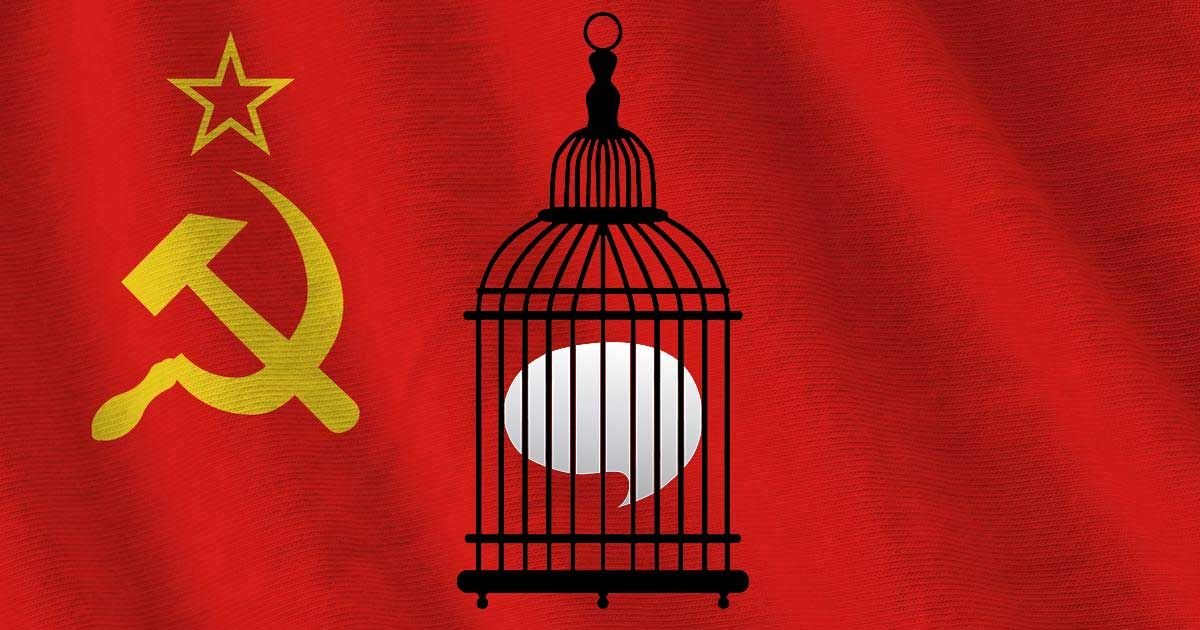
Double Censorship: Russia Criminalizes Online Searches and Imposes Mobile Internet Blackouts
Digital freedom in Russia is under attack like never before. In a coordinated crackdown combining repressive legislation and strategic internet outages, the Russian government seems determined to tighten its grip on the country’s online environment. With a new law criminalizing the mere act of searching for “extremist” content and the growing imposition of mobile internet blackouts, experts warn: we’re witnessing the rise of a full-scale digital dystopia.
The New Digital Repression Law
Just last week, the Russian parliament passed a law that allows authorities to fine individuals who “deliberately” access content classified as “extremist.” The definition, vague and expansive by design, ranges from websites linked to terrorist organizations to materials from groups promoting LGBTQIA+ rights. The fine for individuals is around $65, but companies that provide or promote tools like VPNs — essential for bypassing censorship — could be hit with penalties up to $12,800.
According to internet freedom advocate Sarkis Darbinyan, the law is about more than censorship. “It’s an intimidation tool. The government wants people to be afraid even to think about searching for information outside the official narrative.” The main concern is the law’s subjectivity: how can authorities prove a user’s “deliberate intent” when accessing restricted material?
Surveillance at Full Throttle
Russia already requires telecom providers and platforms to store user data for extended periods. Under the new law, this information can now serve as legal evidence. The scope of surveillance includes browsing history, data from public Wi-Fi networks, and even personal device logs.
Ironically, even pro-Kremlin agents may be affected. Yekaterina Mizulina, head of a state-affiliated organization that monitors “extremist” content, warned that the law could disrupt her team’s work — since merely accessing banned materials might expose them to legal risk.
Internet Blackouts: The State’s New Weapon
Alongside the legislation, Russia is also experiencing a wave of mobile internet blackouts. The official justification is to prevent Ukrainian-operated drones from using mobile networks for attacks. Since May, over 70 regions have experienced disruptions — with 41 also facing broadband outages.
In Rostov-on-Don, near the Ukrainian border, locals are adjusting to the “new normal” of disconnection. Blogger Pavel Osipyan went viral for his satirical rap on the situation: “How do you know someone is from Rostov? Just check their signal bar.” His lyrics highlight everyday struggles like failed card payments, offline GPS, and pharmacies unable to process prescriptions.
Economic and Social Fallout
The consequences go far beyond personal inconvenience. Small businesses dependent on mobile networks and apps have seen significant drops in revenue. In rural areas with no wired internet alternatives, the situation is dire. In Belgorod, air raid alarms failed due to lack of internet — residents resorted to banging on metal rails to warn neighbors.
“Sovereign Internet” and the Kremlin’s Agenda
Since the 2022 invasion of Ukraine, Putin’s regime has accelerated efforts to build a “sovereign internet” — a network isolated from the global web and entirely controllable by the state. Platforms like Instagram, Facebook, and even YouTube have faced blocks and instability. VPN access is increasingly restricted as digital stores are pressured to remove them.
According to Access Now, normalizing digital repression is a dangerous path. “What’s presented as a temporary safety measure can quickly become permanent policy,” warns digital rights expert Anastasiya Zhyrmont.
A Digital Democracy in Decline
The current situation paints a bleak picture of online freedom in Russia. With punitive laws, institutionalized censorship, and relentless surveillance, the space for dissent and independent information is vanishing. Tools once used to protect anonymity and resist oppression are now criminalized.
Groups like Net Freedoms continue to expose how controversial laws are snuck into seemingly harmless legislation, bypassing public scrutiny and media oversight.
Conclusion: A Government-Ordered Offline Future
Russia appears to be following the path of countries like Iran and China, where digital liberties are severely curtailed. But unlike those regimes, Russia’s repression is more unpredictable — impacting even regions with no direct link to the war.
With increasingly broad laws and intrusive control measures, Vladimir Putin’s government is building an unprecedented infrastructure for censorship and digital repression.
As citizens adapt — some with creativity, others with resignation — the question remains: how long until free internet in Russia becomes nothing more than a distant memory?
Leave a Reply